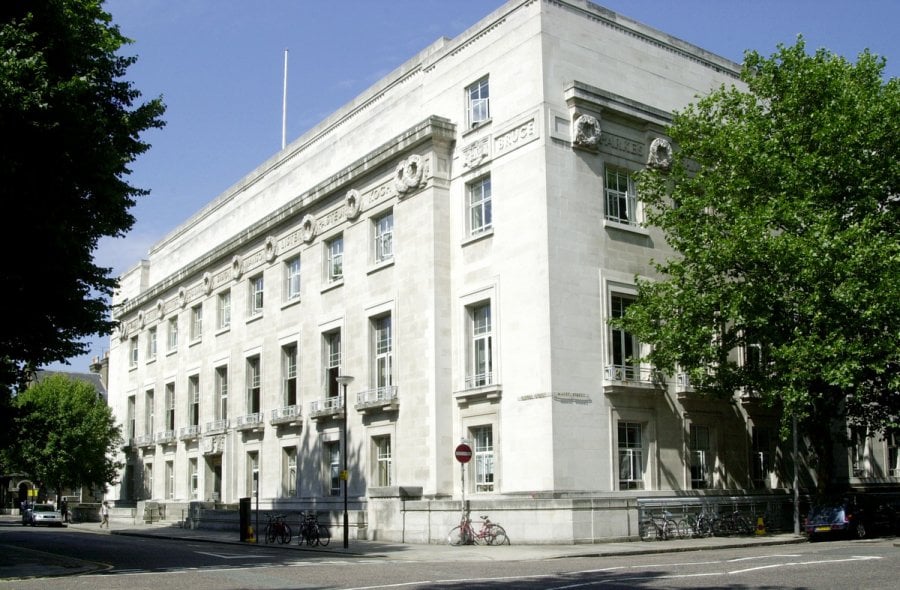LSHTM begins largest ever sustainability drive
7 May 2021 London School of Hygiene & Tropical Medicine London School of Hygiene & Tropical Medicine https://lshtm.ac.uk/themes/custom/lshtm/images/lshtm-logo-black.png
LSHTM Keppel St from Malet St.
The ‘green’ upgrades have been made possible thanks to a £1.2m grant from Salix Finance, the government funding scheme aimed at reducing emissions across public sector organisations, topped up by an additional £800,000 from LSHTM.
This is the organisation’s largest ever sustainability drive, and will accelerate the transition away from fossil fuels to alternative energy solutions. Once complete, it is estimated to save at least 300,000kWh a year in energy – equivalent to the annual electricity consumption of around 80 average UK homes.
The project supports LSHTM’S Energy and Carbon Management Plan, in which LSHTM has pledged to reach net-zero carbon emissions by 2030.
The university’s Grade II listed main building is almost 100 years old, and the project will upgrade some of its ageing infrastructure to meet modern environmental standards. This includes replacing all windows on the Malet Street external façade, dramatically improving the building’s energy efficiency, and installing low-flow taps.
Solar panels will be installed on our Tavistock Place building, providing a low-carbon source of power, the ultra-low temperature freezers in our labs will be upgraded and a new electrical sub-station will be installed for the Keppel Street building.
John Starmer, Director of Estates at LSHTM, said: “As a global health institution, we recognise the harmful impact emissions have not only on the environment, but on human health. We are committed to leading the way to a greener, healthier future by taking significant steps to improve our own sustainability.”
These upgrades will also contribute to LSHTM’S long-term plan for improving its estates, which aims to increase operational efficiency, improve the use of space and build longer-term resilience across its buildings. This will be vital to continuing to deliver world-class research and education in the coming years.
The programme of works began in January and is expected to be completed by the end of September 2021.
If you enjoyed this article and would like to build a career in global health, we offer a range of MSc programmes covering health and data, infectious and tropical diseases, population health, and public health and policy.
Available on campus or online, including flexible study that works around your work and home life, be part of a global community at the UK's no.1 public health university.